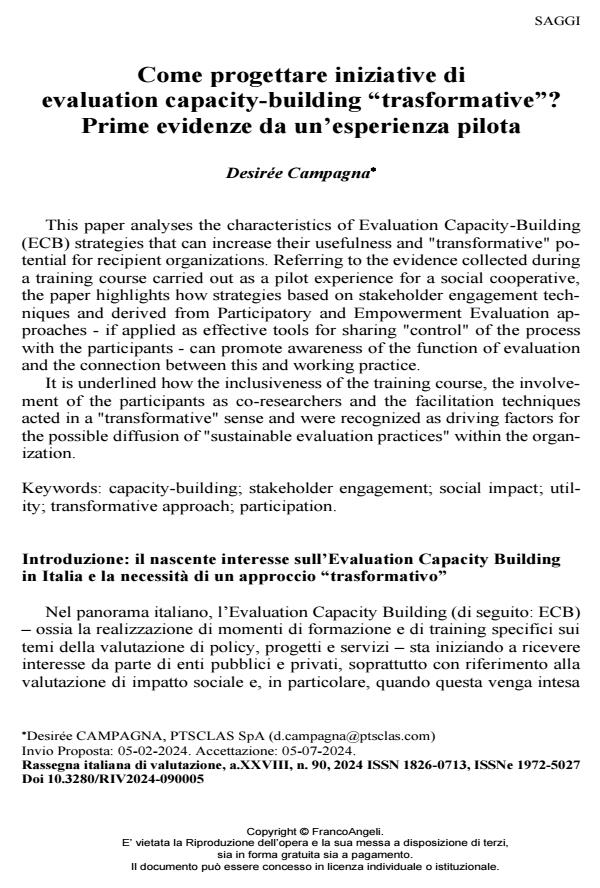Come progettare iniziative di evaluation capacity-building “trasformative”? Prime evidenze da un’esperienza pilota
Titolo Rivista RIV Rassegna Italiana di Valutazione
Autori/Curatori Desirée Campagna
Anno di pubblicazione 2024 Fascicolo 2024/90
Lingua Italiano Numero pagine 19 P. 68-86 Dimensione file 473 KB
DOI 10.3280/RIV2024-090005
Il DOI è il codice a barre della proprietà intellettuale: per saperne di più
clicca qui
Qui sotto puoi vedere in anteprima la prima pagina di questo articolo.
Se questo articolo ti interessa, lo puoi acquistare (e scaricare in formato pdf) seguendo le facili indicazioni per acquistare il download credit. Acquista Download Credits per scaricare questo Articolo in formato PDF

FrancoAngeli è membro della Publishers International Linking Association, Inc (PILA), associazione indipendente e non profit per facilitare (attraverso i servizi tecnologici implementati da CrossRef.org) l’accesso degli studiosi ai contenuti digitali nelle pubblicazioni professionali e scientifiche.
This paper analyses the characteristics of Evaluation CapacityBuilding (ECB) strategies that can increase their usefulness and "transformative" potential for recipient organizations. Referring to the evidence collected during a training course carried out as a pilot experience for a social cooperative, the paper highlights how strategies based on stakeholder engagement techniques and derived from Participatory and Empowerment Evaluation approaches if applied as effective tools for sharing "control" of the process with the participants can promote awareness of the function of evaluation and the connection between this and working practice. It is underlined how the inclusiveness of the training course, the involvement of the participants as coresearchers and the facilitation techniques acted in a "transformative" sense and were recognized as driving factors for the possible diffusion of "sustainable evaluation practices" within the organization.
Parole chiave:capacitybuilding; stakeholder engagement; social impact; utility; transformative approach; participation.
Desirée Campagna, Come progettare iniziative di evaluation capacity-building “trasformative”? Prime evidenze da un’esperienza pilota in "RIV Rassegna Italiana di Valutazione" 90/2024, pp 68-86, DOI: 10.3280/RIV2024-090005